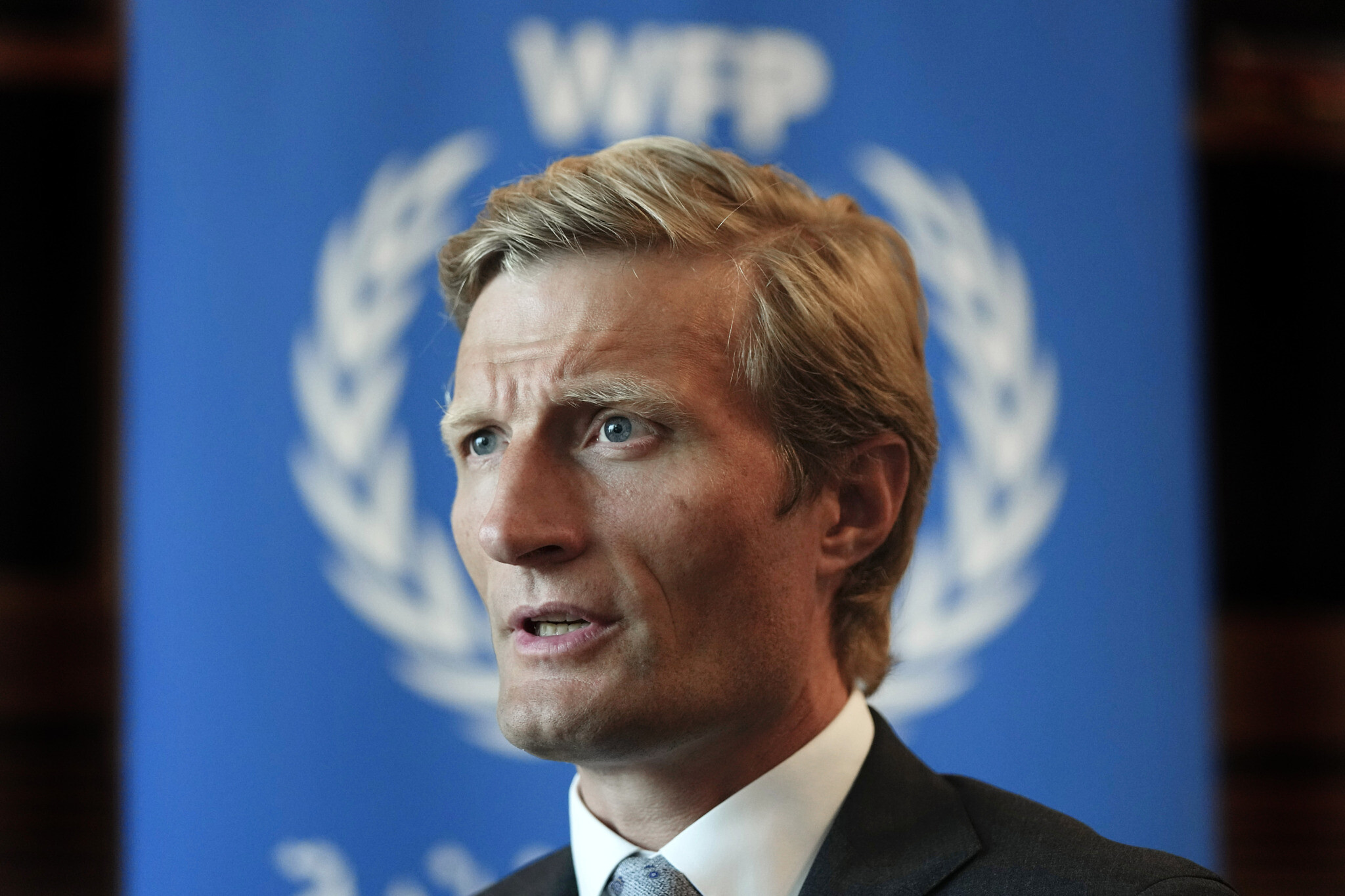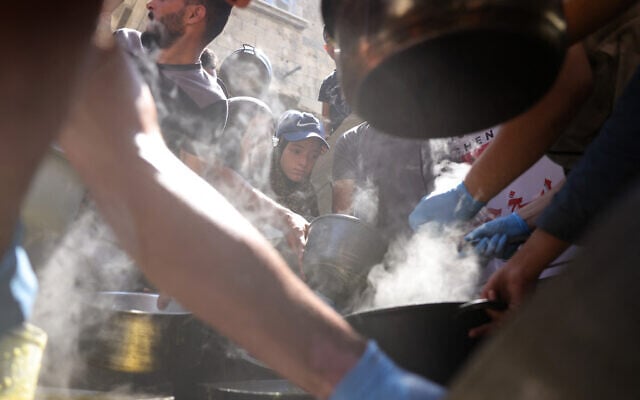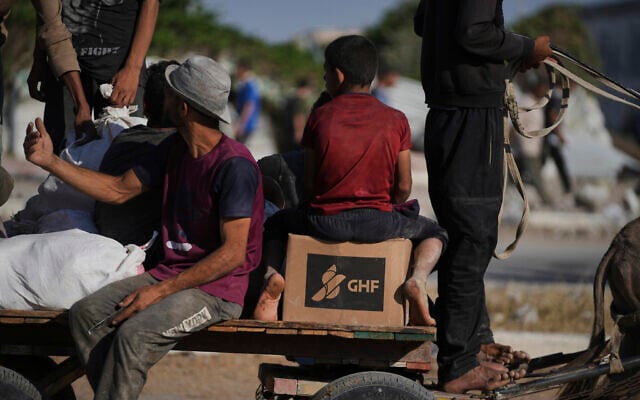



UNITED NATIONS — Israeli officials have signaled they want the United Nations to remain the key avenue for humanitarian deliveries in Gaza, the deputy head of the World Food Program said on Friday, noting the work of a controversial US aid group was not discussed.
“They wanted the UN to continue to be the main track for delivery, especially should there be a ceasefire, and they asked us to be ready to scale up,” Carl Skau, deputy executive director of the UN food agency, told reporters on Friday after visiting Gaza and Israel last week.
The US, Egypt and Qatar are trying to broker a ceasefire in the war between Israel and Palestinian terror group Hamas in Gaza. Hamas said on Wednesday that the flow of aid was one of the sticking points.
Israel and the United States have publicly urged the UN to work through the new Gaza Humanitarian Foundation, but the UN has refused, questioning the group’s neutrality and accusing the distribution model of militarizing aid and forcing displacement.
Skau said he met with Israeli authorities at different levels last week and that the Gaza Humanitarian Foundation “did not come up in those conversations.”
“I think there were rumors of the UN being pushed out, but it was very clear in my engagement that they want the UN to continue to be the main track in delivery,” Skau said.
After Israel lifted an 11-week aid blockade on Gaza on May 19, allowing limited UN deliveries to resume, the GHF launched its operation, using private US security and logistics firms to transport aid to distribution hubs, a week later.
GHF, which seeks to circumvent Hamas in the distribution of aid, has faced harsh criticism from the UN and other aid organizations which charge that it fails to meet the needs of Gaza’s population. Gazans have reported near-daily incidents in which groups trying to reach GHF facilities are shot at by Israeli forces, leading to mass casualties.
The United Nations human rights office said on Friday that it had recorded 615 deaths near GHF sites and 183 deaths “presumably on the route of aid convoys” operated by the UN and other relief groups.
The Israel Defense Forces said Friday that it had issued instructions to troops in the field “following lessons learned” after reports of deadly incidents at GHF distribution facilities.
Israel, which accuses Hamas of hoarding aid, has also accused the terror group of attacking Gazan aid seekers near GHF sites and falsifying death tolls. However, Israel has also acknowledged that “several” Palestinian civilians have been killed near GHF aid distribution sites.
GHF has repeatedly said there have been no deaths at any of its aid hubs. The group said on Friday that it has so far delivered more than 70 million meals in Gaza. It also welcomed the agreement announced this week by Israel and the European Union to scale up humanitarian aid in Gaza along with the ongoing negotiations for a ceasefire in the Strip.
“GHF also continues to press the Government of Israel to live up to its commitment to allow us to open additional sites, including in the north of Gaza,” GHF said.
The US State Department has already approved $30 million in funding for the GHF, which touts its model as “reinventing aid delivery in war zones.”
Throughout the conflict, the United Nations has described its humanitarian operation in Gaza as opportunistic — facing problems with Israel’s military operation, access restrictions by Israel into and throughout Gaza, and looting by armed gangs.
But the UN has said its aid distribution system works, and that was particularly proven during a two-month ceasefire, which Israel abandoned in mid-March. The UN said it got 600-700 trucks of aid a day into Gaza during the truce and has stressed then when people know there is a steady flow of aid, the looting subsides.


